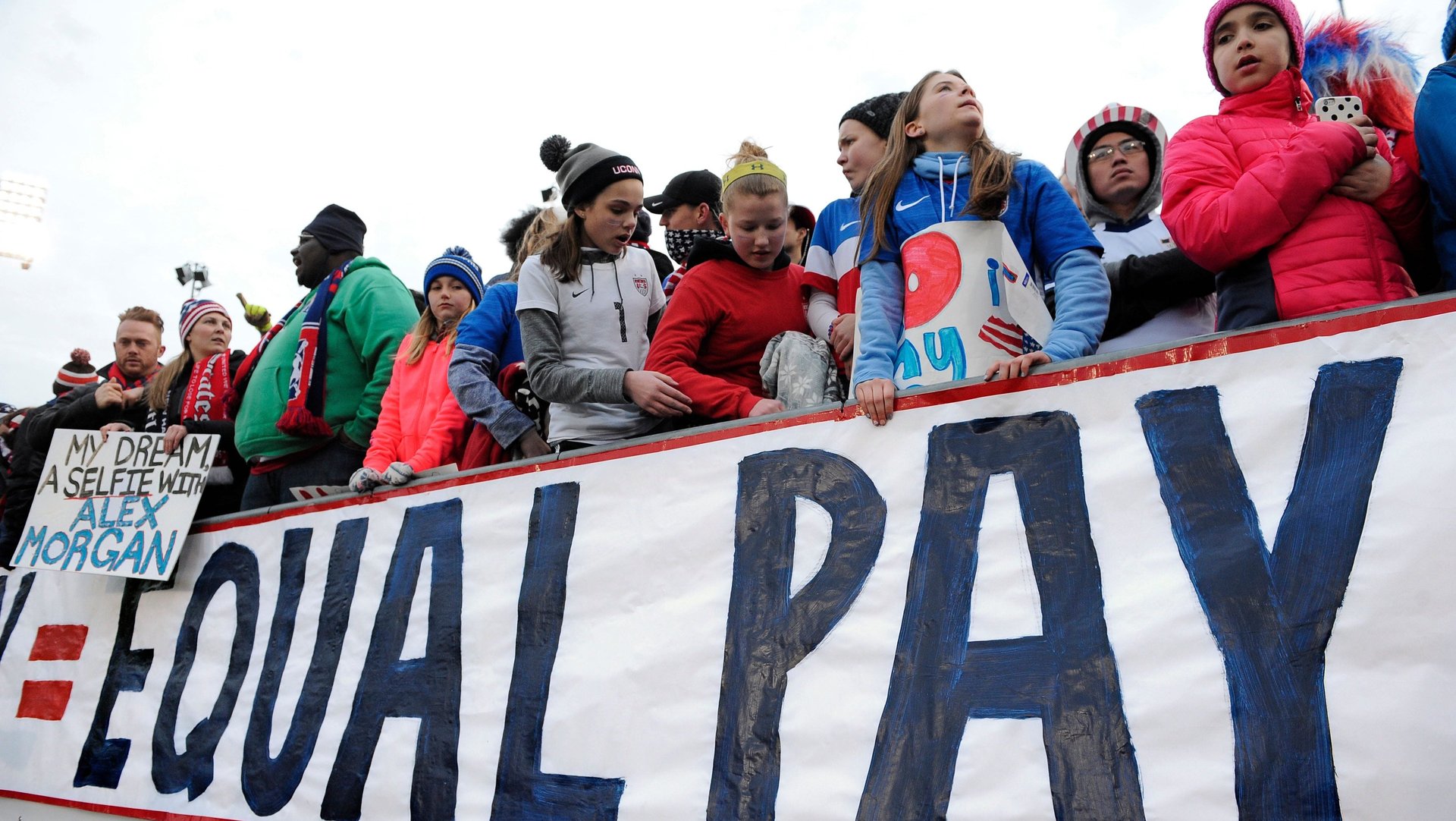How women can work together to change an employer’s unfair pay practices
When BBC journalist Carrie Gracie learned in 2017 that she was being paid significantly less than two men who held the same title she did, she asked the company to raise her pay. The BBC declined.


When BBC journalist Carrie Gracie learned in 2017 that she was being paid significantly less than two men who held the same title she did, she asked the company to raise her pay. The BBC declined.
Gracie, an accomplished journalist, was beset with self-doubt, according to a recent account (paywall) by Lauren Collins in The New Yorker. Was the discrepancy somehow the result of her own errors or shortcomings?
But then she saw an open letter from a group of female co-workers, addressed to BBC director Tony Hall.
“The BBC has known about the pay disparity for years. We all want to go on the record to call upon you to act now,” the letter stated. “This is an opportunity for those of us with strong and loud voices to use them on behalf of all, and for an organisation that had to be pushed into transparency to do the right thing.” Gracie added her name, and from then on was no longer alone in her fight for equal pay.
“The reason the BBC thought they could get away with it is that they hadn’t factored in the multiplier effect of solidarity,” Gracie told Collins. “If you tell me I’m rubbish, I might believe you, but if you tell me she’s rubbish I know it’s not true.”
The BBC is just one of many companies around the world publicly reckoning with pay disparities along gender lines. But as Collins makes clear, the dispute at the broadcaster is notable in part for how its female employees effectively banded together to share the work—and the risk—of challenging an organization on pay.
Find strength in numbers
Gracie was far from the only woman at the BBC not being paid fairly for her work. An internal audit in 2017 found that women at the organization made on average 9% less than the men, though the company also said there was no evidence of systemic discrimination.
Gracie’s case, however, was so blatant, and the BBC’s defense of underpaying her so weak, that it became a rallying point for fed-up staffers. When Gracie resigned as China editor to appeal the BBC’s refusal to rectify her salary, more than 100 women signed a second open letter in support of her, while the hashtag #IStandWithCarrie flourished on social media. Eventually, more than 1,000 women at the BBC asked the organization to re-evaluate their pay.
Cover each other
Challenging an employer always carries a certain amount of risk—especially for junior workers. To shield up-and-coming colleagues from retaliation, senior women with higher status in the organization took the public-facing roles. High-status women accompanied lower-status colleagues to grievance hearings.
Work in a way that works for your group
Employees organizing the equal pay efforts called themselves by the simple name BBC Women. With everyone balancing demanding jobs and additional responsibilities like caring for children or aging parents, many of the women had little time for in-person meetings, Collins wrote. Instead they coordinated their efforts through WhatsApp. To keep from burning out, they took turns spearheading efforts.
Share what you know
Over WhatsApp, the women armed one another with the arsenal of their shared information, swapping salary details and negotiating tactics, and helping each other craft emails and take notes. As journalist Martine Croxall told Collins: “We advise women to 1. Never go to meetings alone. Always take a colleague or a rep with you. 2. Take copious notes and reflect them back to your manager in writing. 3. In the interest of transparency, share with your colleagues so that you add to the body of evidence and experience that we’re clocking up.”
Get allies
Just as white people have to speak out against white supremacy, the fight against gender discrimination shouldn’t have to be shouldered by women alone. Men at the BBC volunteered their salaries to female colleagues, signed open letters, and attended protests at the organization in support of equal pay. This acknowledges that the fight for equal pay isn’t just about women, but about all marginalized groups being unfairly paid less than they’re worth, and the organization as a whole being worse off for it.
The tactics used by the women of the BBC helped sustain journalists like Gracie during a long and grueling grievance process. And they were effective. In July, the BBC noted that it had brought its gender pay gap down from 9.3% to 7.6%. More women appeared in the organization’s annual list of its highest earners. And in late June, Gracie received a public apology from the BBC, along with £280,000 ($376,000) in back pay. She donated it all to the Fawcett Society, a UK women’s rights group, with the stipulation that it be used for legal aid for low-income women.